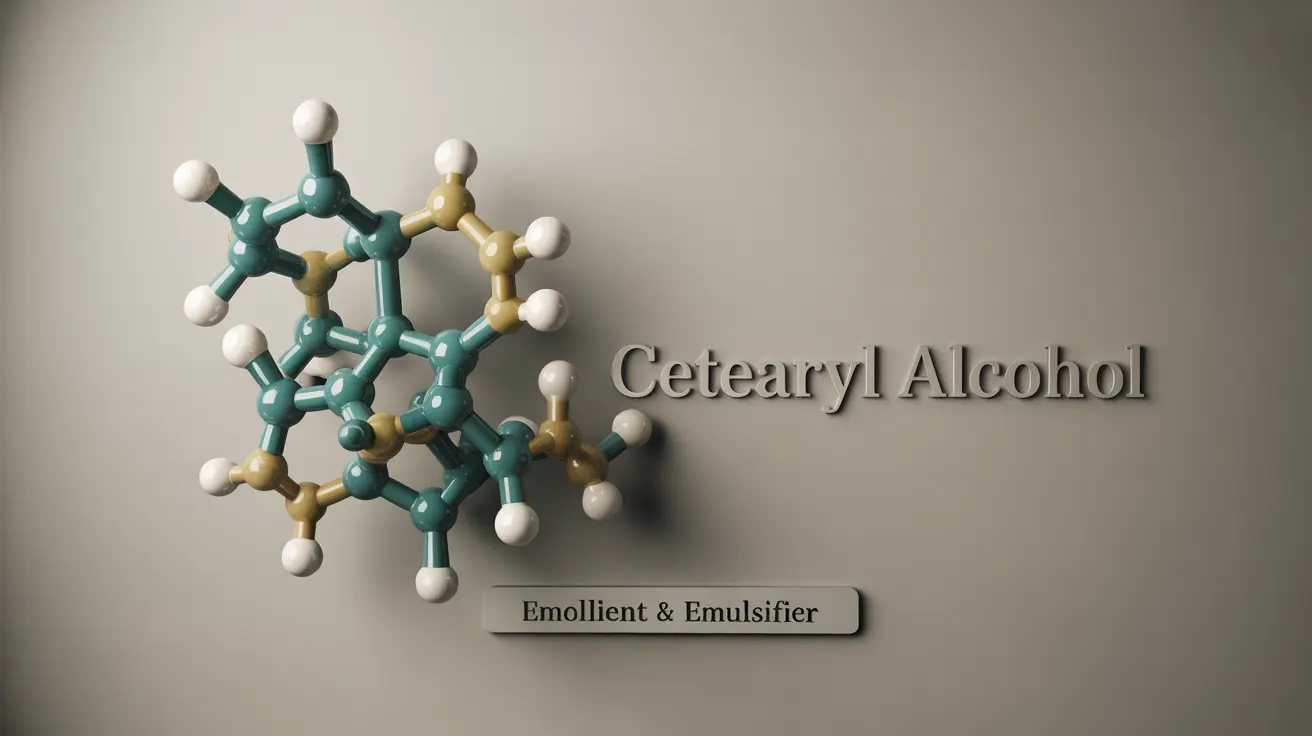Understanding the ingredients in your skincare and haircare products is essential for making informed choices about what you put on your body. Cetearyl alcohol, a common ingredient in many personal care products, often raises questions among consumers concerned about its safety and effectiveness. Despite its name containing the word "alcohol," this ingredient plays a crucial role in product formulation and offers several benefits for skin and hair care.
In this comprehensive guide, we'll explore what cetearyl alcohol is, its benefits, safety profile, and common uses in cosmetic products. We'll help you understand why this ingredient appears in so many personal care formulations and whether it's right for your specific skin type.
What Is Cetearyl Alcohol?
Cetearyl alcohol is a fatty alcohol that combines cetyl and stearyl alcohols, creating a waxy, white substance used in cosmetic formulations. Unlike traditional alcohols that can dry out the skin, cetearyl alcohol belongs to a family of emollient ingredients that help improve product texture and provide skin-conditioning benefits.
Benefits and Functions in Skincare
Moisturizing Properties
As an emollient, cetearyl alcohol helps create a protective barrier on the skin's surface, preventing moisture loss and keeping skin hydrated. It works by filling in the spaces between skin cells, creating a smoother, softer appearance.
Texture Enhancement
In skincare and haircare products, cetearyl alcohol serves as an emulsifier and thickener, helping to:
- Stabilize formulations
- Create creamy textures
- Prevent separation of oil and water-based ingredients
- Improve the overall feel of products
Safety and Skin Compatibility
Despite concerns about alcohols in skincare, cetearyl alcohol is generally considered safe for most skin types. The Cosmetic Ingredient Review (CIR) has evaluated this ingredient and confirmed its safety for use in cosmetic formulations at typical concentration levels.
Sensitivity Considerations
While most people tolerate cetearyl alcohol well, a small percentage may experience mild reactions. It's always recommended to perform a patch test before using new products, especially if you have sensitive skin or a history of allergic reactions.
Common Product Applications
Cetearyl alcohol is found in various personal care products, including:
- Moisturizers and creams
- Hair conditioners
- Body lotions
- Facial cleansers
- Sunscreens
- Makeup products
Best Practices for Use
When using products containing cetearyl alcohol, follow these guidelines:
- Always check product labels if you have specific skin concerns
- Start with a small amount to test skin tolerance
- Use products as directed by the manufacturer
- Discontinue use if irritation occurs
Frequently Asked Questions
What is cetearyl alcohol, and is it safe to use in skincare and haircare products?
Cetearyl alcohol is a fatty alcohol that functions as an emollient and emulsifier in personal care products. It is generally considered safe for use in skincare and haircare products, with extensive safety testing supporting its use in cosmetic formulations.
How does cetearyl alcohol benefit dry or sensitive skin and hair?
Cetearyl alcohol helps moisturize and condition both skin and hair by creating a protective barrier that locks in moisture. It also helps improve product texture, making formulations more effective and pleasant to use.
Can cetearyl alcohol cause skin irritation or allergic reactions?
While cetearyl alcohol is generally well-tolerated, some individuals may experience mild irritation or allergic reactions. These cases are relatively rare, but it's important to perform a patch test before using new products containing this ingredient.
Is cetearyl alcohol suitable for acne-prone or sensitive skin types?
Cetearyl alcohol is typically suitable for most skin types, including acne-prone and sensitive skin. However, individual reactions can vary, so it's important to monitor your skin's response when using products containing this ingredient.
What types of cosmetic products commonly contain cetearyl alcohol and why is it used in them?
Cetearyl alcohol is commonly found in moisturizers, conditioners, lotions, and creams. It's used primarily as an emulsifier to stabilize formulations, improve texture, and provide moisturizing benefits. Its ability to thicken products and create smooth, creamy textures makes it valuable in various cosmetic applications.




